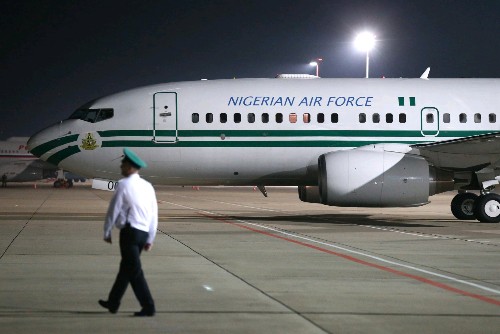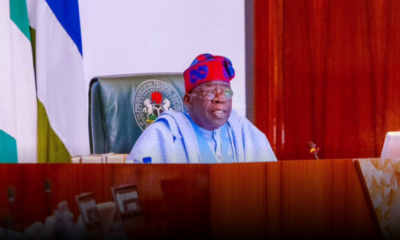The presidential air fleet (PAF) says its budgetary allocation in the past few years is insufficient to fund its operations.
Abubakar Abdullahi, commander of the fleet, spoke on Thursday when he received members of the house of representatives committee on national security and intelligence who were on an oversight visit to the base in Abuja.
Abdullahi, who was represented by Ahmed Dari, the operations officer, said in 2021, the fleet submitted a total budget of N18,767,393,235 but only N12,550,18,732 was approved, while N10,907,642,492 was released as of December 2021.
Dari said in 2022, the fleet proposed the sum of N19,479,313,645, but N12,476,607,142 was approved in the national budget.
He explained that the total releases to the fleet as of November 2022 comprise 99.83 percent of personnel cost, 94 percent of overhead, and 99.99 percent of capital cost — amounting to the sum of N11.13 billion which is 98.07 percent of the total fund approved.
‘Debts Owed To Foreign Service Providers’
For 2023, Dari said the fleet requires the sum of N15,522,357,626 out of which N438,571,562 is for personnel cost; N11,641,170,764 is for overhead cost; while N3,442,615,300 is for capital expenditure.
“Please note that the shortfall in the overhead cost usually affects aircraft maintenance activities in the fleet. The inadequacy of this provision was brought to the attention of the respected committee as it has always been during the budget defence and oversight visit,” he said.
“I wish to bring to your attention that aircraft maintenance which accounts for 46 percent of the overall budget proposal is an integral part of the overhead cost. Consequently, the shortfall of the overhead greatly affected aircraft maintenance activities in the fleet. Some mandatory upgrades were carried out on a credit basis on the fleet’s longstanding relationship with maintenance companies while others have been moved to the year 2023 budget.
“This committee may wish to note that the quality of aircraft maintenance conducted is directly proportional to flight safety and it is critical to the importance of safe operations in the fleet.
“It is important for this committee to note that for successive years, the fleet has been grossly underfunded which has made it difficult to operate. From the fleet records, debts from preceding years are usually carried over to the following year and this has become the tradition.
“Permit me to also state that most of these debts are owned by service providers overseas. Considering that over 85 percent of the fleet expenditure is forex, the actual budget figure in dollars is further diminished.
“It is important to note that the average age of the presidential air fleet aircraft is 11 years and in aviation, maintenance increases proportionately with the age of the aircraft. Based on the fleet experience, the cost of maintaining each aircraft ranges between $1.5 million to $4.5 million depending on the level of maintenance.
“Additionally, the year 2023 is an election year which translates to more missions and space requests for the aircraft due to increased usage.”
‘We Will Assist You’ — Lawmakers
In his remarks, Sha’aban Sharada, chairman of the committee, said the lawmakers are aware of the constraints faced by the presidential air fleet and will intervene to address the challenges.
“We are not unaware of the challenges that you face,” he said.
“In your earlier submission, that aeroplane maintenance accounts for 46 percent of your overhead cost. Thank you for carrying out your responsibilities with utmost patriotism and diligence despite the obvious constraint that confront you.
“The committee will do what it can to assist the fleet in addressing these challenges.”
The committee also visited the National Intelligence Agency (NIA) where it inspected the facilities in the complex.
Credit: The Cable

 BIG STORY2 days ago
BIG STORY2 days ago
 BIG STORY4 days ago
BIG STORY4 days ago
 BIG STORY3 days ago
BIG STORY3 days ago
 BIG STORY4 days ago
BIG STORY4 days ago
 BIG STORY3 days ago
BIG STORY3 days ago
 BIG STORY2 days ago
BIG STORY2 days ago
 BIG STORY1 day ago
BIG STORY1 day ago
 BIG STORY8 hours ago
BIG STORY8 hours ago






















